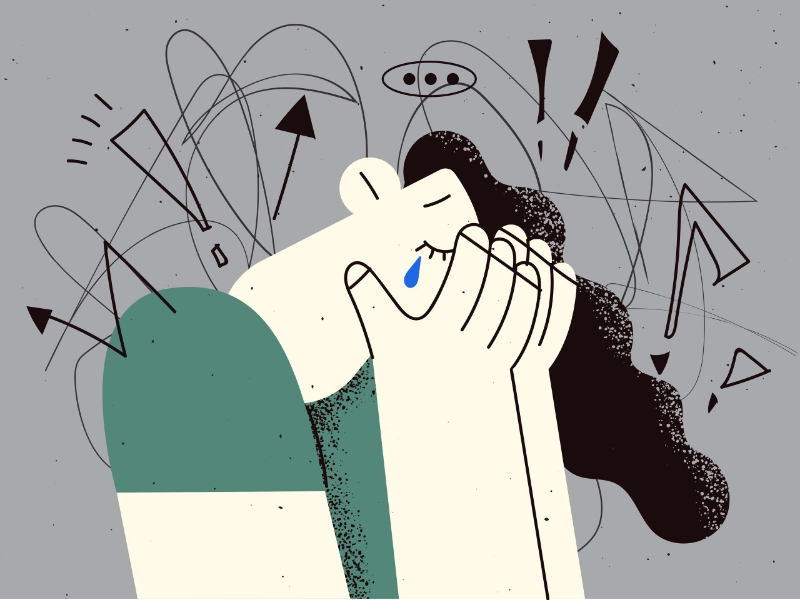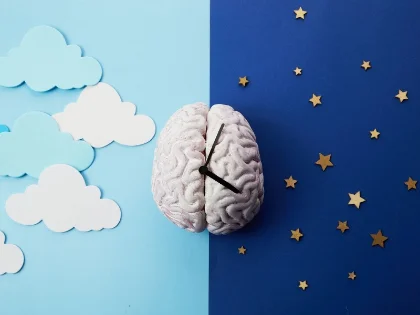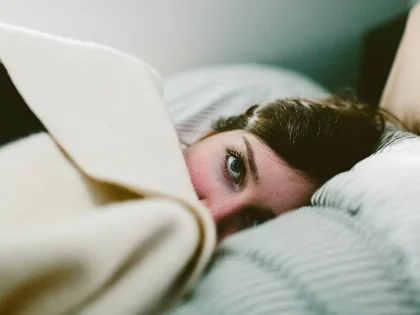Mood fluctuations, fuzzy thinking, and an agitated feeling can all result from insomnia. Health issues like diabetes, heart disease, and high blood pressure can also result from it.
Acute insomnia lasts less than a week, but chronic insomnia lasts longer. Stress, work, family, and financial difficulties, as well as prescription drugs, pain, and sickness, are precipitating causes.
Stress

While stress is a natural part of life, it can occasionally be the root cause of transient sleeplessness. Our ancient ancestors' bodies naturally reacted to danger with this, which is why it kept them alive. However, if it persists for an extended period of time, it can interfere with a restful night's sleep.
Stress frequently disrupts your sleep by causing you to obsessively think about your obligations, money, or family issues. It can also lead to a vicious cycle where you become fixated on your concerns and anxiety over not getting enough sleep.
An inconsistent sleep schedule, mental health issues, certain drugs, physical ailments or discomfort, and certain medications are other reasons of insomnia associated to stress. Hot flashes can be brought on by hormonal changes that occur during the menstrual cycle and during menopause, which can disrupt sleep.
Anxiety

Having anxiety can significantly impact your capacity to sleep soundly at night. Worrying about a nightmare or an upcoming event can keep you awake at night. Additionally, it may make it harder to fall asleep in the first place.
Anxiety and insomnia can coexist in a vicious cycle whereby sleeplessness exacerbates anxiety by making it difficult to fall asleep. Until this loop is broken, it can go on indefinitely.
One treatment that can help you better control your anxiety and obtain a decent night's sleep is cognitive behavioral therapy (CBT). You can learn mindfulness, meditation, and breathing exercises from a CBT professional to help relax your body and mind before bed.
Lack of Exercise

Insomnia can be brought on by a variety of factors, such as anxiety or stress, physical ailments including Parkinson's disease and fibromyalgia, drugs (including some over-the-counter sleeping pills), and other sleep disorders. These problems can be complicated, and their resolution calls for expertise.
Insomnia and other underlying medical issues can be treated with behavioral therapy. If necessary, your doctor may also prescribe medicine to help you fall asleep temporarily. However, in order to treat insomnia over the long term, it's critical to identify its cause.
Your bedroom atmosphere, your bedtime routine, and the foods and beverages you consume before bed can all be lifestyle factors that are causing your insomnia. Because alcohol, nicotine, and caffeine are known to interfere with sleep, you can also try cutting them back or giving them up.
An Uncomfortable Bed

A comfy bed is necessary for restful sleep. However, there are a number of short- and long-term factors that might impact how comfortable your bed is. These include the time you spend in bed, the amount of caffeine you drink, and the pattern of sleep you follow.
In Guy de Maupassant's short novella "An Uncomfortable Bed," the narrator suspects that his friends are pulling pranks on him. He draws the drapes and closes the shades as he carefully examines his room. Sadly, he unintentionally sets himself up for a painful practical joke while trying to protect himself from a humiliating one.
Try to create a regular sleep schedule and minimize the amount of time you spend in bed to prevent insomnia. You can fall asleep faster with exercise, but try not to work out right before bed.
Medication

Insomnia can be caused by a wide range of medical conditions, including cancer, discomfort, digestive issues, hormonal changes (such as those that occur during menstruation or perimenopause), mental health issues, and some prescription drugs. Taking care of the underlying issue will frequently make you sleep better. Your doctor might be able to prescribe you a different prescription or assist you in reducing the dosage if the drug is the cause.
Additionally, you have to review the components of any over-the-counter drugs or herbal supple
ments you are taking. Caffeine is one of those that can interfere with your sleep. A multitude of variables, such as anxiety over not getting enough sleep or avoiding activities that would tire you out, may contribute to persistent insomnia. This may result in a vicious loop where your worry and inactivity make it harder for you to fall asleep.













